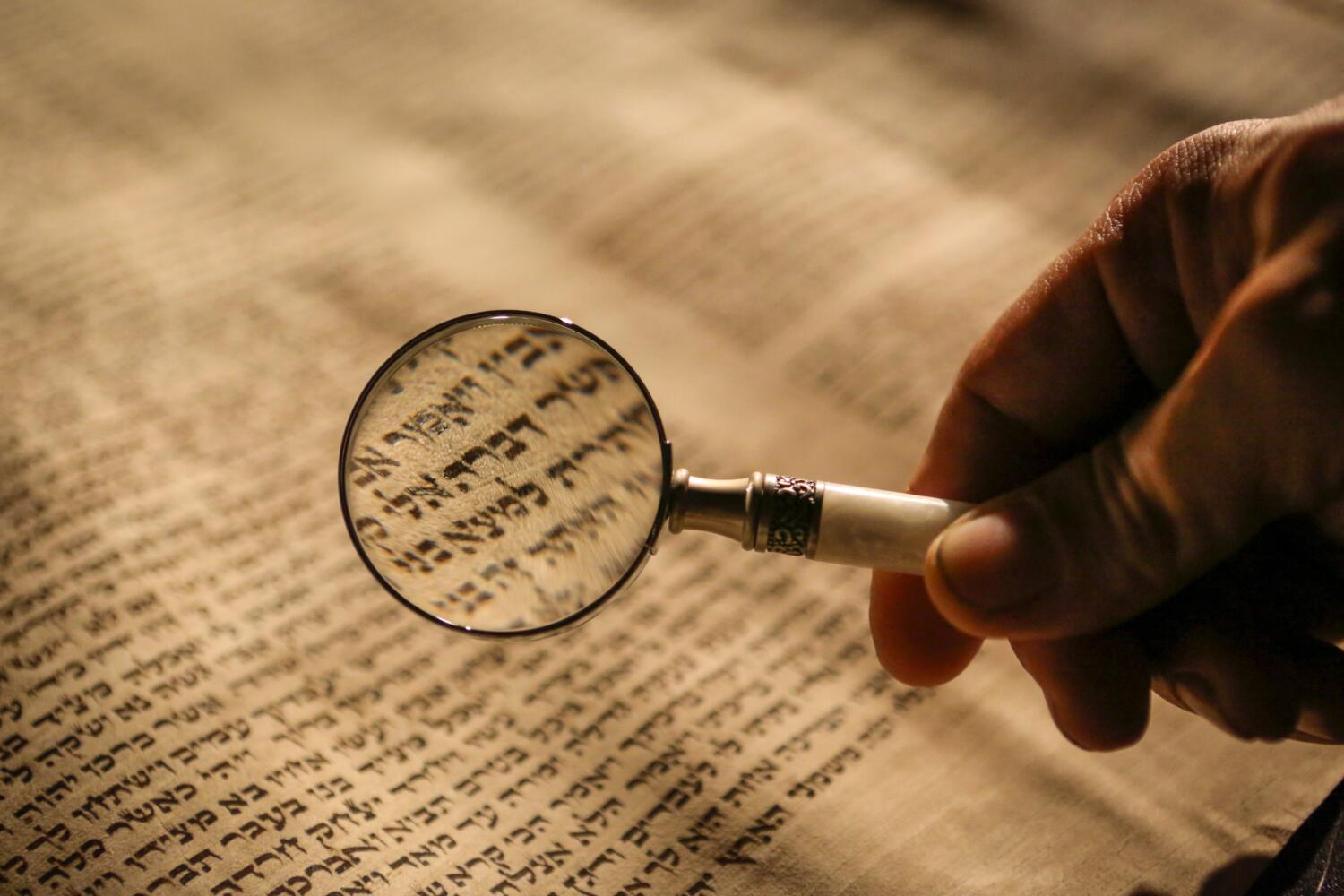Digging Deeper: Every Word of God is Pure
Author: Mr. Kenneth Frank | Faculty in Theology, Living Education
Estimated Reading Time: 7 min., 41 sec.
Did you know that God says every one of His words is pure?
Some question the Bible today, considering it only another one of many religious books that humans have produced over the millennia. They say it may have some truths in it but it also contains much to be discarded as unscientific, antiquated, or irrelevant. Critics and doubters assert that various myths and inaccuracies have crept into it. What is a Christian to make of all of this? Does the Bible attest to its purity? What internal evidence affirms the accuracy and dependability of God’s word? We tackle this fundamental issue in this edition of Digging Deeper.
Our main text is: “Every word of God is pure: he is a shield unto them that put their trust in him” (Proverbs 30:5 KJV). God affirms that every word of His is pure. At this point, we will zoom in on the original word translated here as “pure.” The Hebrew word is tsawraf. This word relates to the smelting of precious metals. It occurs 33 times in the Hebrew Bible and is translated by different words depending on the context. The NET Bible explains its use in this verse: “The text here uses an implied comparison (a figure of speech known as hypocatastasis): It compares the perfection of every word from God with some precious metal that has been refined and purified (e.g., Psalm 12:6). The point is that God’s word is trustworthy; it has no defects and flaws, nothing false or misleading. The second half of the verse explains the significance of this point – it is safe to trust the LORD” (e-Sword 12.1). God’s words have passed through a spiritual furnace to remove all impurities, leaving behind only the purest elements.
The ESV Study Bible elaborates on this verse: “…the implication is that God’s words are a proven foundation for one’s life. The proverb’s emphasis on every ‘word’ (Hb. ’imrah) underscores the truthfulness, trustworthiness, and reliability of the Bible, not just in its overall message but also of every detail. This verse supplies support for the doctrine of the ‘plenary’ (full, complete) inspiration of Scripture, extending even to ‘every word'” (Tecarta Bible App). Ethelbert Bullinger in his Companion Bible informs us that the Hebrew for “word” (imrah) occurs only here in the Book of Proverbs; additionally, the Hebrew word for “God” (Eloah) as a title for God is used only here in Proverbs (e-Sword 12.1). Standing alone in the entire Book of Proverbs, these words stress the importance of this admonition.
Not only are we assured God’s word is refined and purified, but it also asserts that it has been purified numerous times: “The words of the LORD are pure words: as silver tried in a furnace of earth, purified seven times” (Psalm 12:6 KJV). The number seven symbolizes completion, perfection, and frequency. Albert Barnes’ Notes on the Bible explains its meaning: “The idea here would seem to be that the process was repeated until the silver became entirely pure. The sense is, that the words of the Lord are ‘perfectly pure.’ There is no admixture of falsehood in his statements; there is no deception in his promises; there is no flattery in what he says. This was the ground of confidence on the part of the psalmist – that while men (even those who professed to be good men) so failed that no reliance could be placed on their statements, the most perfect trust could be reposed on all the statements of God” (e-Sword 12.1). As a result, we can fully rely on them as John Gill explains in his Exposition of the Bible: “The Scriptures are the words of God; and they are pure and holy, free from all human mixtures, and from all fraud and deceit; they are the Scriptures of truth. The promises are the words of God, and they are firm and stable, and always to be depended on, and are ever fulfilled, being yea and amen in Christ Jesus” (Ibid.).
Various explanations have been offered through the years about these seven stages of purification. The Common Man’s Reference Bible has one such explanation: “The earthly purification process of the words of God involved seven languages: Hebrew, Greek, Aramaic, Old Syriac, Old Latin, Old German, and the King’s English”. Other authors have suggested seven historic stages of the English Bible leading to the King James Version. Whichever it was, we can be sure God has safely guarded His word through the centuries. Let’s notice these cross-references, “As for God, his way is perfect; the word of the LORD is tried: he is a buckler to all them that trust in him” (2 Samuel 22:31 KJV). Not only is it tried (tested, proven), it is also settled: “Forever, O LORD, thy word is settled in heaven” (Psalm 119:89 KJV). We do not have to be concerned about whether the Bible contains all that God intended us to have. Additionally, notice that “Thy word is true from the beginning: and every one of thy righteous judgments endureth for ever” (Psalm 119:160 KJV). Some of the greatest attacks today are leveled against the first 11 chapters of Genesis. This verse tells us that everything in it, starting with Genesis, is trustworthy.
Not only are we assured God has purified his word, but notice this promise: “Thou shalt keep them, O LORD, thou shalt preserve them from this generation for ever” (Psalm 12:7 KJV). Timothy Morton in his book Which Translation Should You Trust? provides this conclusion: “That God has promised to preserve His word should be obvious to the most casual reader of the Bible. He not only loved man enough to give him His word in the first place, but He also promised to keep it pure, somewhere, for every generation” (Bible Analyzer 5.4.1.22). Not only did God originally inspire the very words of Scripture but then He preserved this word through the millennia so that we have a trustworthy Holy Book today even though we depend on translations. The very Bibles we hold and read are God’s witness to us. We stake our eternal lives on this Book. Do you know where that preserved word is? Have you demonstrated to your satisfaction that the Holy Bible is His word? If you haven’t already done so, you need to do the work to settle this in your mind once and for all.
Bible scholars and commentators through the centuries have realized their limitations in attempting to expound the pure word of God. We can admire their devotion and diligent effort working many years to provide Bible study resources. They share with us many things that the average Bible reader might miss. We learn from them as did the Ethiopian Eunuch from Philip. Nonetheless, those who have studied it over many years recognize that there is so much more they cannot fully fathom. There are limitless levels of understanding of the richness of Scripture. Notice this comment from Joseph Benson in his Commentary on the Old and New Testaments: “You must not expect the full knowledge of divine mysteries from me, nor from any man, but from the word of God, which is a certain rule, both for your faith and practice, because every part of it is holy, and true, and good, and there is not the least mixture of falsehood or folly in it, as there is in all the words and writings of men” (e-Sword 12.1).
Purifying God’s word seven times has produced a perfect witness. Notice: “The law of the LORD is perfect, converting the soul: the testimony of the LORD is sure, making wise the simple” (Psalm 19:7 KJV). Lest we should be tempted to think that His word may have disappeared, notice: “The grass withereth, the flower fadeth: but the word of our God shall stand for ever” (Isaiah 40:8 KJV). Verses like those we have read should assure us that we can depend on this Book and live by every word of God (Matthew 4:4). Notice these words from our Savior: “Heaven and earth shall pass away, but my words shall not pass away” (Matthew 24:35 KJV). We need to know where these words are. Once we do, we are thus admonished: “Thy word is very pure: therefore thy servant loveth it” (Psalm 119:140 KJV).

Kenneth Frank was born and raised in New Jersey, USA, and attended Ambassador College, graduating in 1973. He served in the Canadian ministry from 1973-1999, after which he returned to the USA to pastor churches in Maryland, Virginia, and North Carolina for 15 years. Having earned a BA degree from Ambassador College he later earned a MA degree from Grand Canyon University before being assigned to the Charlotte office to teach at Living University, now Living Education. Currently, he teaches the Survey of the Bible course to the on-campus students and writes the Digging Deeper column for our online Bible study program. He is married, has four children, and seven grandchildren.









